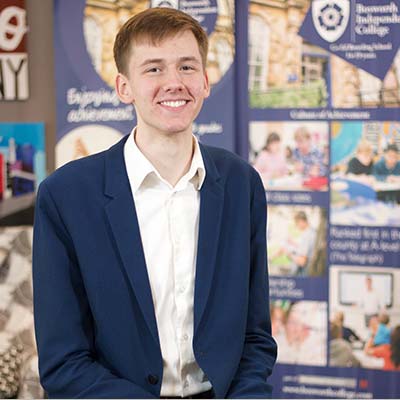The University of Sheffield has announced that Bosworth student, Andrius from Tallinn in Estonia has won First Prize in the international competition for Innovative Use of Technology in Science Learning.
The prize is awarded annually to students aged 11-18, from any school in the world, for the best video about any Science, Technology, Engineering or Mathematics subject matter. Andrius’ video, the Magic of Magnetic Poles was considered to be the very best overall entry.

Bosworth students initially compete with each other to have their video put forward as the one entry permitted per school. They create the videos in their own time, without teachers’ intervention, demonstrating their sincere passion to communicate a scientific, technological, engineering or mathematical (STEM) matter. Bosworth’s maths and science departments are especially high-achieving and so it comes as little surprise that the opportunity to take part in the Kroto prize is grasped each year by so many academically ambitious young people.
The competition is judged by a specialist panel, including senior academic staff at the University of Sheffield from STEM disciplines and staff with expertise in public engagement, education, science communication and film making. Sponsored by the Jacobs Foundation.
Judges score entries on the basis of:
- Academic Content
- Use of Technology
- Communication and presentation
- Ambassadors for Learning and Science
Andrius’ presentation is especially engaging and fun, explaining magnetism in such a way as to make it interesting and simple to understand. Throughout his time at Bosworth College he has always enjoyed supporting other students with their learning and is known to be gregarious and sociable whilst passionate about sharing understanding of Science. 17-year-old Andrius has been at Bosworth, an independent school on Barrack Road in Northampton, since September 2017, studying A-levels in Mathematics, Further Mathematics and Physics, alongside Economics at AS. He is planning to study Mathematics with Actuarial Science at the University of Southampton from September.